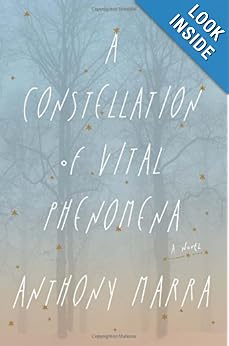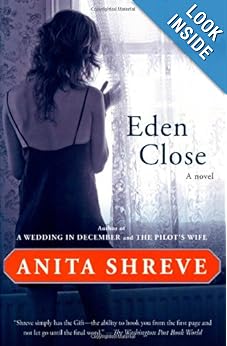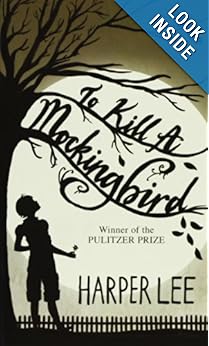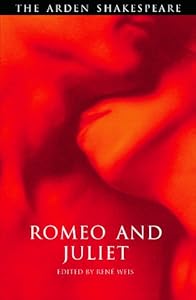"Why do they even care? What could they possibly want with a child?" "No one is off limits because there are no limits. The why and the what aren't for us to consider. Those are questions for philosophers and imams and not for people like us, whoever we are."
If you haven't heard of A Constellation of Vital Phenomena, it's only a matter of time as the book just came out in May. It's being hailed by everyone as brilliant and wonderful and Foer-esque; I am completely in agreement with everything good said about this book. My only complaint is that I read it while camping and without any internet access, which made it a little difficult because if I don't know something, I want to know it. A book about Chechnya when you have never even heard of Chechnya is not a book to be tackled without the google machine.
The book has interconnected stories that span space and time which is always a quick way to my heart. It focuses on an eight-year old, Havaa, who manages to escape the Russian raid that takes her father to a torture camp. The neighbor, Akhmed, takes it upon himself to keep her safe. They journey to a hospital where Akhmed offers his medical skills (he is the worst doctor in Chechnya, but a brilliant portrait artist) in exchange for the Head Surgeon (and only doctor) Sonja to keep her safe.
The book is a long one, and I also didn't have a pen with me to keep track of people's relationships to one another which I could have used. It's been compared to Everything Is Illuminated and the comparison is apt - we get people's back stories, it's a war torn country, incredibly terrible things happen to very good people, and everyone is just trying to get by. The writing is beautiful, the story is beautiful, and I cried several times while reading it.
One of my Facebook book groups recently posed the question: how do you feel when an author is telling a story about a group of people that they're not a part of? (It was in reference to Lisa See who has one Chinese great-grandparent and writes novels mostly centering around China). This book is an example of me being so utterly impressed that an author is able to capture something so outside of his own personal experiences. Much of the book is written from the perspective of women - from the child, to the doctor who defies gender roles, to a woman who is forced into sexual slavery. He is not Chechan or Russian, but this area of the world is obviously his passion. Not knowing anything about Chechnya, I can't speak to his ability to capture that. He does a wonderful job capturing the female experience, so I can only hope that he does the same for this small part of the world that has not received a lot of literary treatment.
If you haven't heard of A Constellation of Vital Phenomena, it's only a matter of time as the book just came out in May. It's being hailed by everyone as brilliant and wonderful and Foer-esque; I am completely in agreement with everything good said about this book. My only complaint is that I read it while camping and without any internet access, which made it a little difficult because if I don't know something, I want to know it. A book about Chechnya when you have never even heard of Chechnya is not a book to be tackled without the google machine.
The book has interconnected stories that span space and time which is always a quick way to my heart. It focuses on an eight-year old, Havaa, who manages to escape the Russian raid that takes her father to a torture camp. The neighbor, Akhmed, takes it upon himself to keep her safe. They journey to a hospital where Akhmed offers his medical skills (he is the worst doctor in Chechnya, but a brilliant portrait artist) in exchange for the Head Surgeon (and only doctor) Sonja to keep her safe.
The book is a long one, and I also didn't have a pen with me to keep track of people's relationships to one another which I could have used. It's been compared to Everything Is Illuminated and the comparison is apt - we get people's back stories, it's a war torn country, incredibly terrible things happen to very good people, and everyone is just trying to get by. The writing is beautiful, the story is beautiful, and I cried several times while reading it.
One of my Facebook book groups recently posed the question: how do you feel when an author is telling a story about a group of people that they're not a part of? (It was in reference to Lisa See who has one Chinese great-grandparent and writes novels mostly centering around China). This book is an example of me being so utterly impressed that an author is able to capture something so outside of his own personal experiences. Much of the book is written from the perspective of women - from the child, to the doctor who defies gender roles, to a woman who is forced into sexual slavery. He is not Chechan or Russian, but this area of the world is obviously his passion. Not knowing anything about Chechnya, I can't speak to his ability to capture that. He does a wonderful job capturing the female experience, so I can only hope that he does the same for this small part of the world that has not received a lot of literary treatment.



